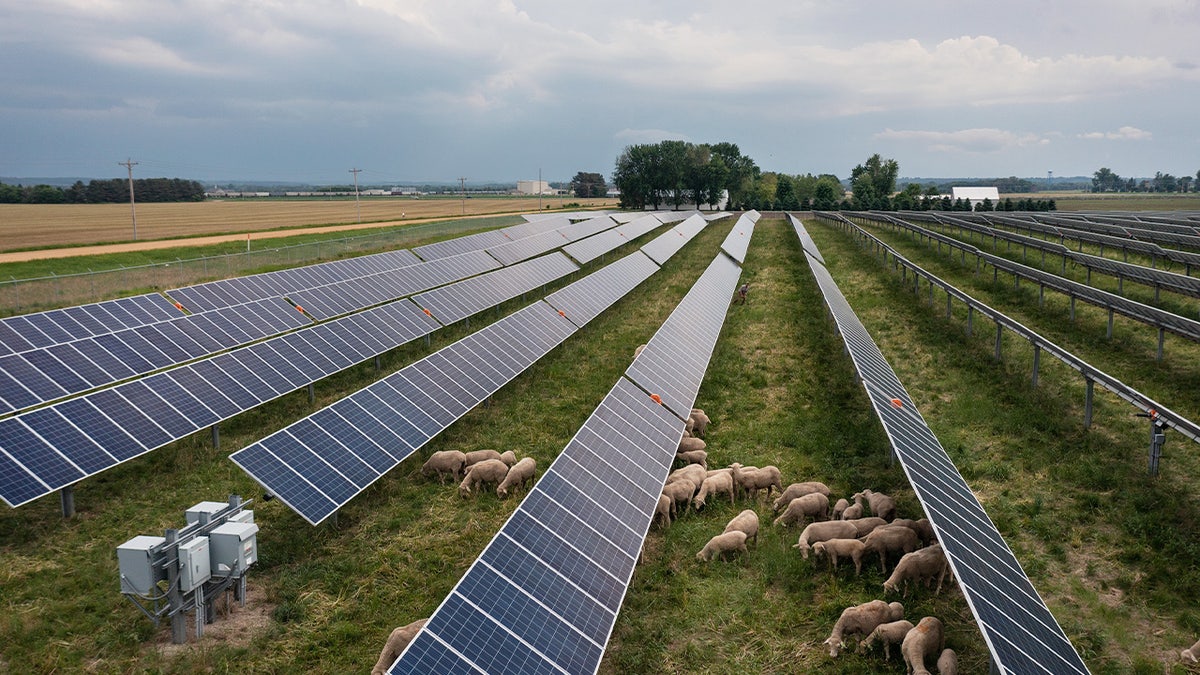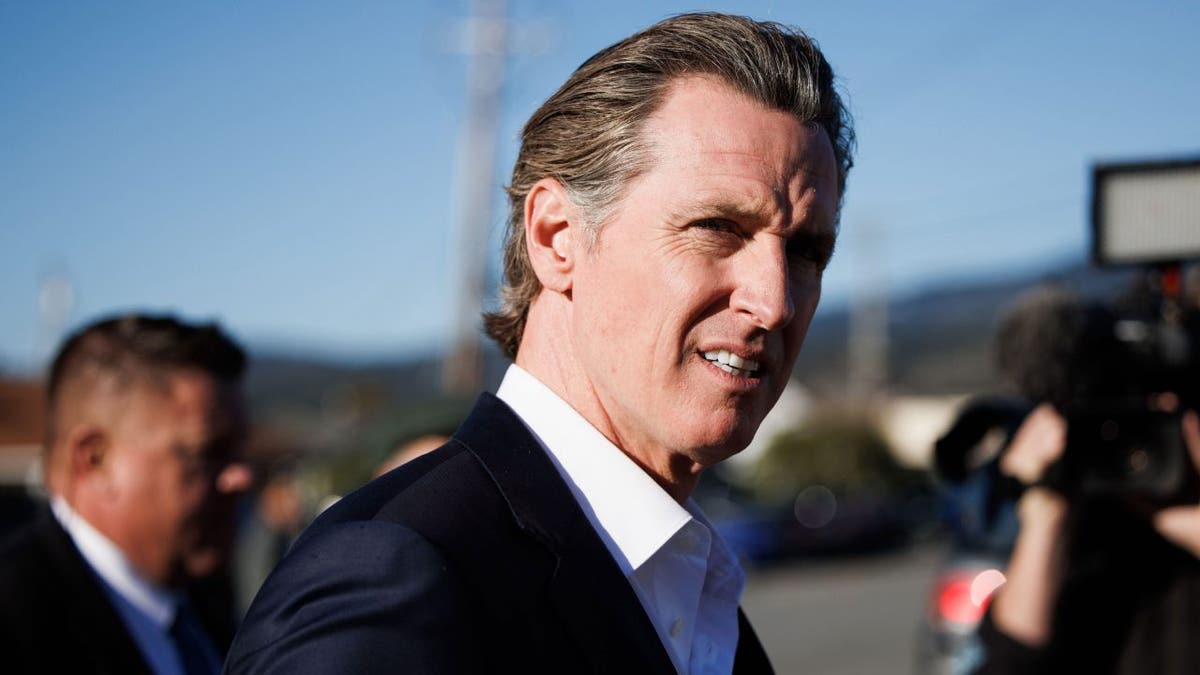California Gov. Gavin Newsom’s office is dismissing a new report saying the Golden State will fail to meet its climate change mandates unless it nearly triples its rate of reduction of greenhouse gases through 2030.
The analysis by Beacon Economics, an L.A.-based economic research firm, found that California’s emissions of carbon dioxide, methane and other gases rose by 3.4% in 2021, after they had dropped during the pandemic. The increase puts California further behind in reaching its required regulation under state law of 40% fewer emissions in 2030 than in 1990.
“The cost of getting the state back on pace would depend on what approach we take,” lead researcher Stafford Nichols told Fox News Digital. “Some strategies are cheaper than others. We could make changes to the regulatory frameworks of California to encourage and enable the adoption of new technologies.”
BIDEN ADMIN AIMS TO PUSH TOWNS, CITIES TO ADOPT GREEN ENERGY BUILDING CODES: ‘VERY SUSPICIOUS’
“However, sometimes politics gets in the way of this decision-making framework, and politicians do not always choose the most efficient strategies,” he added.
California’s regulatory plan championed by Gov. Gavin Newsom to ban new gas-powered vehicles more than a decade from now is aimed at protecting public health by reducing the amount of particulate matter — like dust, dirt and soot — that’s in the air.
But not all experts agree with the state’s push for what’s termed “clean energy,” which is energy from renewable sources to generate solar, wind, water, geothermal and bioenergy.
Ronald Stein, energy consultant at the nonprofit Heartland Institute, told Fox News Digital in an interview that California’s movement for clean energy is “increasing emissions around the world.”
17 RETIRED MILITARY OFFICIALS RAISE ALARM ON BIDEN’S ELECTRIC VEHICLE PUSH

“Because what we’re doing is we’re basically delegating it to other countries that are providing all the products back to California, and they have no environmental or labor controls,” Stein said. “We keep shutting down our gas-powered plants, and now California imports more electricity than any other state.”
He added, “We have a demand, our neighbors have a supply.”
According to the economic firm’s analysis, a significant amount of emissions, amounting to more than 100 million metric tons annually, would have to be eliminated for California to meet its own goal. The state would fail to slash 258 million metric tons of carbon dioxide equivalent emissions on its current trajectory, the analysis says.
VIRGINIA DEMOCRATS UPHOLD STATE’S EV MANDATE DESPITE GROWING OPPOSITION: ‘DEFY COMMON SENSE’
Newsom’s office told Fox News Digital that the analysis doesn’t tell the full story about the state’s climate initiatives.
“Nobody thought we would achieve our climate goals, like 1.5 million zero-emission vehicles by 2025 and cutting greenhouse gas emissions to 1990 levels by 2020 – we’re exceeding them years ahead of schedule. We’ll continue proving everybody wrong,” a Newsom spokesperson said.
“I want to underscore the point that the study doesn’t take into account a lot of our current and future work to achieve targets,” the spokesperson added.
Newsom’s office also said the state is investing more than $48 billion in climate change initiatives alone, including $10 billion in zero-emission vehicles and chargers.
“That’s on top of the billions in federal spending that will accelerate the transition to clean energy,” the spokesperson said.

People living in California have been paying 32 cents per kilowatt-hour compared to the national average of 18 cents, according to Energy Sage, which has monitored energy prices nationwide. It said California residents have been paying $273 per month on average for electricity, or $3,276 per year.
Meanwhile, industry sources told Fox News Digital the Environmental Protection Agency is slated to issue a final decision this week on regulations targeting gas-powered vehicle tailpipe emissions, which officials have boasted will incentivize greater adoption of electric vehicles nationwide but which opponents have criticized as a de facto mandate. The regulations, a key part of President Biden’s climate agenda, would ultimately force automakers to more rapidly expand electric options in their fleets beginning in a matter of years.
Fox News’ Eric Revell, Thomas Catenacci and William La Jeunesse contributed to this report.
Read the full article here